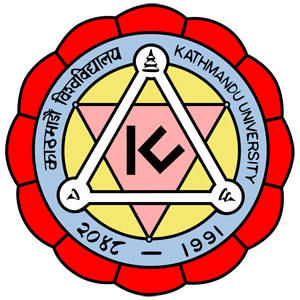Overview
MS by Research in Geomatics Engineering at Department of Geomatics Engineering, Kathmandu University
Introduction
The Master of Science (MS) by Research program at the Department of Geomatics Engineering, Kathmandu University, is a research-intensive program designed to foster innovation and expertise in the field of geomatics engineering. This program is structured to provide students with a deep understanding of the theoretical and practical aspects of geomatics, while emphasizing active research and development. Spanning over two years, the MS by Research program engages students in finding solutions to complex research questions under the guidance of experienced supervisors.
Program Overview
The MS by Research in Geomatics Engineering is tailored for individuals who are passionate about advancing their knowledge and contributing to the field through rigorous research. The program covers various domains of geomatics engineering, including surveying, mapping, geospatial data analysis, remote sensing, and geographic information systems (GIS). By focusing on these areas, the program aims to equip students with the skills and knowledge necessary to address real-world challenges and contribute to the advancement of geomatics technologies.
Curriculum Structure
The MS by Research program is meticulously designed to balance coursework with extensive research activities. The curriculum is divided into four semesters, with each semester focusing on different aspects of geomatics engineering and research methodologies.
First Year: Foundational Knowledge and Research Preparation
First Semester:
- Introduction to Geomatics Engineering: An overview of the fundamental concepts and applications of geomatics engineering.
- Research Methodologies in Geomatics: Techniques and methodologies for conducting research in geomatics, including qualitative and quantitative research methods.
- Advanced Geospatial Technologies: In-depth study of advanced geospatial technologies, including remote sensing, GIS, and spatial data analysis.
- Elective Course: Students can choose an elective course that aligns with their research interests and career goals.
Second Semester:
- Advanced Surveying Techniques: Exploration of modern surveying techniques and their applications in geomatics engineering.
- Geospatial Data Management: Methods for managing, storing, and retrieving geospatial data efficiently.
- Research Proposal Development: Students develop a detailed research proposal under the guidance of their supervisors, outlining their research questions, objectives, and methodologies.
- Elective Course: Another elective course to further support the student's research focus.
Second Year: Focused Research and Thesis Development
Third Semester:
- Research Project I: Students begin their research projects, collecting data and conducting preliminary analyses. Continuous guidance from supervisors ensures the research stays on track.
- Specialized Topics in Geomatics: Seminars and workshops on specialized topics relevant to the student's research.
- Research Progress Review: Regular review sessions to assess research progress and provide feedback.
Fourth Semester:
- Research Project II: Continuation and completion of the research project. Students finalize their data collection and analysis.
- Thesis Writing and Presentation: Students compile their research findings into a comprehensive thesis. This process includes writing, editing, and preparing for the final presentation.
- Thesis Defense: Students present and defend their research findings before a panel of experts.
Research Domains
The MS by Research program covers a wide range of research domains within geomatics engineering. Some of the key research areas include:
- Surveying and Mapping: Innovative techniques for land surveying, topographic mapping, and cadastral systems.
- Remote Sensing: Advanced applications of remote sensing technologies for environmental monitoring, disaster management, and resource management.
- Geographic Information Systems (GIS): Development and application of GIS for spatial data analysis, urban planning, and infrastructure management.
- Geospatial Data Analysis: Techniques for analyzing large geospatial datasets to extract meaningful insights and support decision-making.
- Land Management: Strategies for effective land use planning, land tenure systems, and land policy development.
- Environmental Monitoring: Using geomatics technologies to monitor and manage environmental changes and natural resources.
Career Opportunities
Graduates of the MS by Research program in Geomatics Engineering are well-prepared for a variety of career opportunities in academia, industry, and government. Some potential career paths include:
- Academic Research: Pursuing a PhD or engaging in postdoctoral research at universities and research institutions.
- Geospatial Analyst: Working with organizations to analyze and interpret geospatial data for various applications.
- GIS Specialist: Developing and managing GIS applications for urban planning, environmental management, and infrastructure development.
- Remote Sensing Scientist: Utilizing remote sensing technologies for environmental monitoring, disaster response, and resource management.
- Surveying and Mapping Engineer: Conducting land surveys and creating accurate maps for public and private sector projects.
- Land Management Consultant: Advising on land use planning, land tenure systems, and policy development for government and non-governmental organizations.
Admission Requirements
To be eligible for the MS by Research program in Geomatics Engineering, applicants must meet the following criteria:
- Educational Background: A Bachelor's degree in Geomatics Engineering, Civil Engineering, Environmental Science, Geography, or a related field.
- Academic Performance: A minimum CGPA of 2.0 or 50% aggregate marks in the undergraduate program.
- Research Proposal: Submission of a research proposal outlining the applicant's intended area of research and objectives.
- Letters of Recommendation: Two letters of recommendation from academic or professional referees.
- Statement of Purpose: A personal statement describing the applicant's motivation for pursuing the MS by Research program and career goals.
Funding and Scholarships
Kathmandu University offers various funding and scholarship opportunities for students enrolled in the MS by Research program. These include:
- University Scholarships: Merit-based scholarships for outstanding students.
- Research Grants: Funding opportunities for research projects from national and international organizations.
- Teaching Assistantships: Opportunities for students to work as teaching assistants, providing financial support and gaining valuable teaching experience.
- External Scholarships: Scholarships from government agencies, non-governmental organizations, and industry partners.
Conclusion
The MS by Research in Geomatics Engineering at Kathmandu University is an excellent program for individuals passionate about advancing their knowledge and contributing to the field through rigorous research. With a comprehensive curriculum, extensive research opportunities, and a focus on cutting-edge technologies, this program prepares graduates to address complex challenges in geomatics engineering and make significant contributions to the field.















